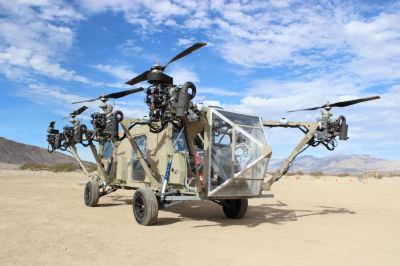The aerospace
sector demands increasingly efficient engines to decrease fuel
consumption and associated emissions. However, the latest rotorcraft
engine technologies designed to meet the demand require more power than
in the past.
Harvesting waste heat for electricity production can provide the
additional power without hampering achievement of the original aim of
sustainability. Scientists have now conducted a thorough analysis of the
technical and economic potential and feasibility of waste heat recovery
for rotorcraft within the scope of the EU-funded project 'Thermal
energy recovery electrical systems' (RECYCLE).
Work began with identification of all sources of heat loss in
rotorcraft systems that could be exploited for electricity production.
Scientists then reviewed the most innovative technologies worldwide to
recover those losses. Technical performance was not the only
consideration. Researchers evaluated the risk of potential solutions,
including electrical and magnetic interference issues, structural
integrity and flight safety.
The most promising candidates underwent a thorough analysis,
resulting in detailed heat and power balance flow diagrams. A
conventional Rankine cycle was chosen. Development of a rotorcraft power
system simulator enabled testing the high-level system behaviour.
RECYCLE's systematic study of thermal heat recovery systems for
electrical power generation from waste heat will pave the way to more
sustainable and green rotorcraft. Advanced electrical systems for
heating, cooling and monitoring will support more efficient engines.
Offsetting their hunger for power with electricity from waste heat will
ensure that sustainability is maintained.
 EN
EN  CS
CS DE
DE ES
ES FR
FR HU
HU IT
IT PL
PL PT
PT РУ
РУ SK
SK TR
TR УК
УК AR
AR 中文
中文







